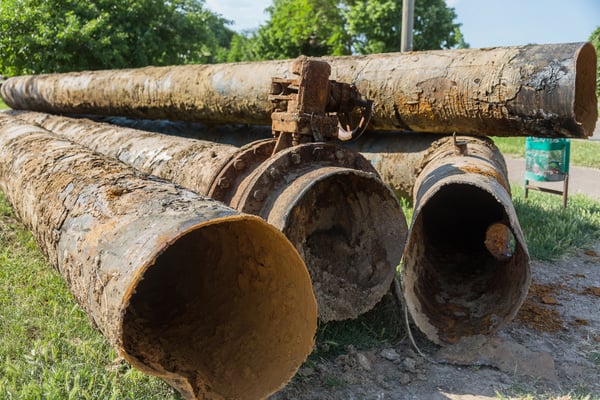One Bridge Solutions
Innovation Lab: Shifting Pipeline Asset Management into High Gear
For pipeline operators in a race against integrity threats, there’s no time to get stalled in neutral.
Yet prescriptive regulations have had that effect. By forcing operators to adhere to rigid, black-and-white rules designed to promote safety and reduce risk, they ignore the vast variability among pipeline networks. Given the considerable differences in pipeline age, size, material and contents, operating pressure, terrain, and other factors, it seems impossible that any one-size-fits-all rule or process could be effective, but that’s what compliance expects.
Consider this: Current requirements say that operators must use worst-case indication growth to establish intervals between successive integrity assessments. The problem is, this doesn’t allow operators to perform the kind of engineering analysis that would help them identify or understand the severity of individual or interactive threats.
Or this: When there aren’t material records to support maximum allowable operating pressure, regulators expect operators to dig up lines to provide verification. But other methods for getting the information exist, including advanced in-line inspection techniques.
Rather than preventing problems through meaningful metrics, operators are being told to react to issues as they occur. And that’s holding the industry back.
Fast-tracking Predictive Analytics
Fortunately, regulators recognized the need to change direction. The relatively new focus on transmission integrity management represents a shift from mandating step-by-step formulas to letting operators think for themselves about how they can best achieve safety results, as long as they meet or exceed the criteria established under the prescriptive method.
Performance-based integrity management promotes flexibility, innovation, and compliance. At the same time, it requires more knowledge about the pipeline. While that may seem daunting at first, data-intensive risk assessments and analyses can prevent failures through smarter inspection scheduling, more effective inspection tools, earlier anomaly detection, and better-performing dig programs. What’s more, they can improve financial planning and resource allocation.
To support those efforts, OneBridge Innovation Lab is working with operators, partners and Microsoft’s Azure cloud computing technologies to fast-track and scale new data science, machine learning, and predictive analytics. Using OneBridge’s Cognitive Integrity Management (CIM) as the engine, Innovation Lab is moving pipeline integrity management from a prescriptive to a pure performance-driven methodology, providing operators with options under ASME B31.8S (gas) ASME B31.4 (liquids).
Like a Cloud-Powered Ferrari
Although many operators are investigating next generation technology and are ready to integrate digital strategies into their businesses, they have limited experience using machine learning and data science to power solutions. Innovation Lab bridges that gap. It enables operators to leverage OneBridge’s expertise and incorporate prototype solutions into the CIM roadmap, with a goal of accelerating commercialization of new applications.
Innovation Lab uses “Test Fast, Learn Fast, Scale Fast” methodologies, which encompass three phases over a four- to six-week cadence:
- Test fast. In phase one, leaders generate a hypothesis, business goals, related benefits, and clearly defined key performance indicators (KPIs). A team forms and is allowed to innovate.
- Learn fast. Next, leaders revisit their business goals, measure innovation against the hypothesis, measure results according to KPIs, and apply innovation to a small business process.
- Scale fast. In the final phase, the lessons are applied to an incrementally larger segment. This controlled rollout incorporates an established feedback loop.
OneBridge launched Innovation Lab in February 2020 at the annual Pipeline Pigging and Integrity Management conference in Houston. The new platform has already attracted multiple prospective projects, including exploratory work regarding non-piggable upstream pipelines. By working with industry visionaries, Innovation Lab can advance industry efficiencies, improve analytical processes to manage pipeline integrity, and, ultimately, enhance community confidence in pipelines under their feet.
Ultimately, it’s like a cloud-powered Ferrari driving the industry forward.


















